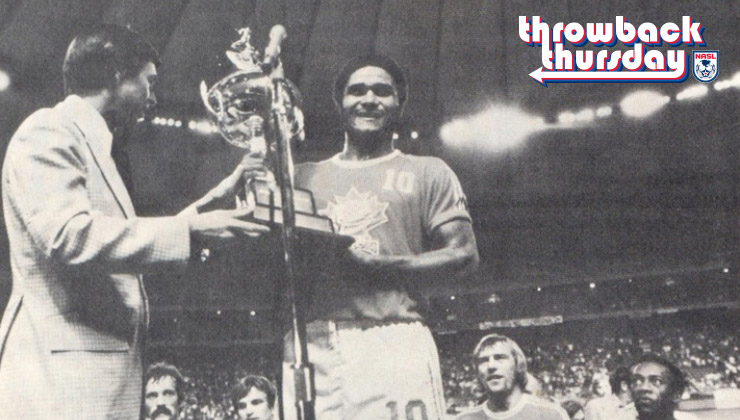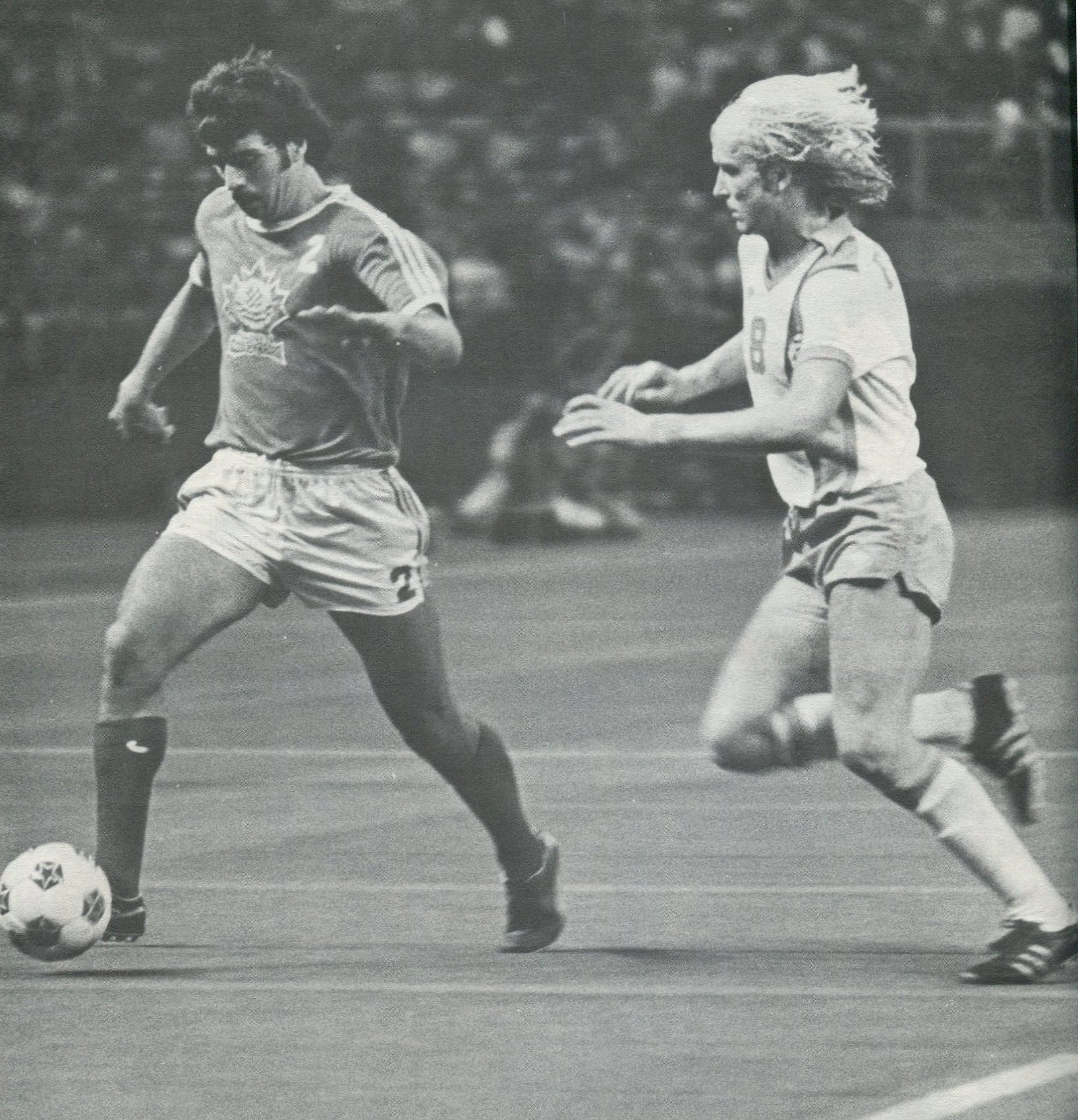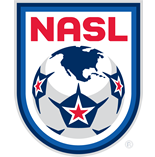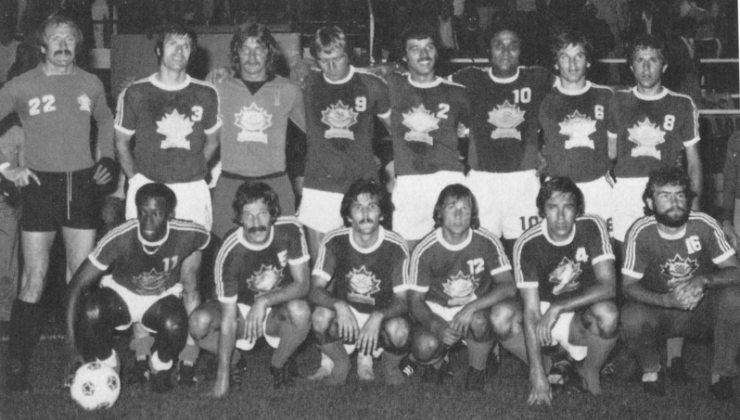THROWBACK THURSDAY | Toronto Metros-Croatia Win First NASL Title By Canadian Side In 1976

The Toronto Metros-Croatia had a roller coaster season in 1976 but, despite the dips, the Canadian side rose up to win its first NASL title, and the first championship by a team from Canada in the league’s Golden Era.
As the only Canadian team in the NASL that season, Toronto in one sense flew the flag for the country, but more so for a group of people from the Balkans.
“I suppose since we were the only Canadian team at the time soccer fans around Canada could kind of root for us,” Bob Iarusci told NASL.com. He played on the Metros-Croatia’s back line from 1976-77.
“The team represented a community, not only in Toronto, but a community that was looking for independence at the time – Croatia was at the time a state or province of Yugoslavia. One of the most important parts of having the Croatia hyphenated with the Metros and representing the city of Toronto was the identification and awareness of the plight of the Croatian people for independence.
“It didn’t strike us at the time, but we were definitely a vehicle of awareness for the eventual independence of a nation. It’s quite incredible actually.”
Not just in name, the team had a heavy Yugoslavian (Croatian) influence on the field, but also boasted one of the greatest players, Portuguese international Eusébio, who scored 16 goals in 21 matches in ’76.
“It was an incredible honor to play with arguably one of the best five players to kick the ball,” Iarusci said. “Eusébio was a phenomenal soccer player, but a great person, and it was an honor that year to be with him on a day-to-day basis on and off the field.”
Winning eight of the first 11 games, part of the Metros-Croatia’s up-and-down season eventually focused around Eusébio. Friction existed between head coach Ivan Markovic and the forward, leading to the Portuguese’s benching – a match Toronto lost, 3-0, to the New York Cosmos.
Two events, however, transpired to put the Metros-Croatia on the track toward an NASL Championship. Markovic was let go as coach and in came Domagoj Kapetanovic. He restored Eusébio to the lineup with the captain’s armband. The other was the addition of German midfielder Wolfgang Sunholz to an already talented squad.
“We wanted to see our best player happy,” Iarusci said. “This is a gentleman that can resolve a game for you, so when he is unhappy it causes problems in the fabric of the team. Once that was solved, we added the cherry to the parfait with a great midfielder like Wolfgang Sunholz.
“These things aren’t measurable, but they are intangibles that serve to make everyone a better player.”
Losing the next three games, Toronto eventually peaked at the right moment. Winning four in a row to close the regular season, Metros-Croatia headed into the postseason as a confident bunch, despite losing the team’s goalkeeper. Starter Paulo Cimpiel believed his contract didn’t extend to the playoffs. He eventually went home to Italy, and local Zeljko Bilecki took over in goal.
Toronto knocked out the Rochester Lancers, 2-1, in the first round of the playoffs and eliminated the Chicago Sting with a shootout win in the conference semifinals. Chicago had finished above Toronto in the Northern Division, although both sides had 15-9 records (there were no ties because the league used a shootout to resolve deadlocked matches).
In the conference championship, the Metros-Croatia came up against the defending champion Tampa Bay Rowdies, who won in the club’s inaugural year in ’75.
“We were very loose,” Iarusci said. “Funny enough, we didn’t realize if we won this game we would be headed directly to Seattle. Most of the guys didn’t even have a change of clothes.”
 In the final, Toronto met the upstart Minnesota Kicks, in their inaugural season, and the club’s high-powered attack. Goals by Eusébio, Ivan LukaÄević, and Ivair Ferreira gave Metros-Croatia the championship before 25,765 at Seattle’s Kingdome, which was demolished in March 2000.
In the final, Toronto met the upstart Minnesota Kicks, in their inaugural season, and the club’s high-powered attack. Goals by Eusébio, Ivan LukaÄević, and Ivair Ferreira gave Metros-Croatia the championship before 25,765 at Seattle’s Kingdome, which was demolished in March 2000.
“I think we were a better team,” Iarusci said. “We were a ball-control team. With Wolfgang in the middle – we already had skillful players – he became our fulcrum. It’s a funny game, sometimes it’s so difficult to play, but when everything clicks in, it’s quite a simple game.”
Iarusci went on to play for the Canadian national team and won three more titles with the Cosmos. But it was helping Toronto become the first Canadian side to win an NASL trophy that proved to be the seminal moment in his career.
“It was one of the highlights of my whole life, it was a magical moment,” he said. “It probably launched my career.”



